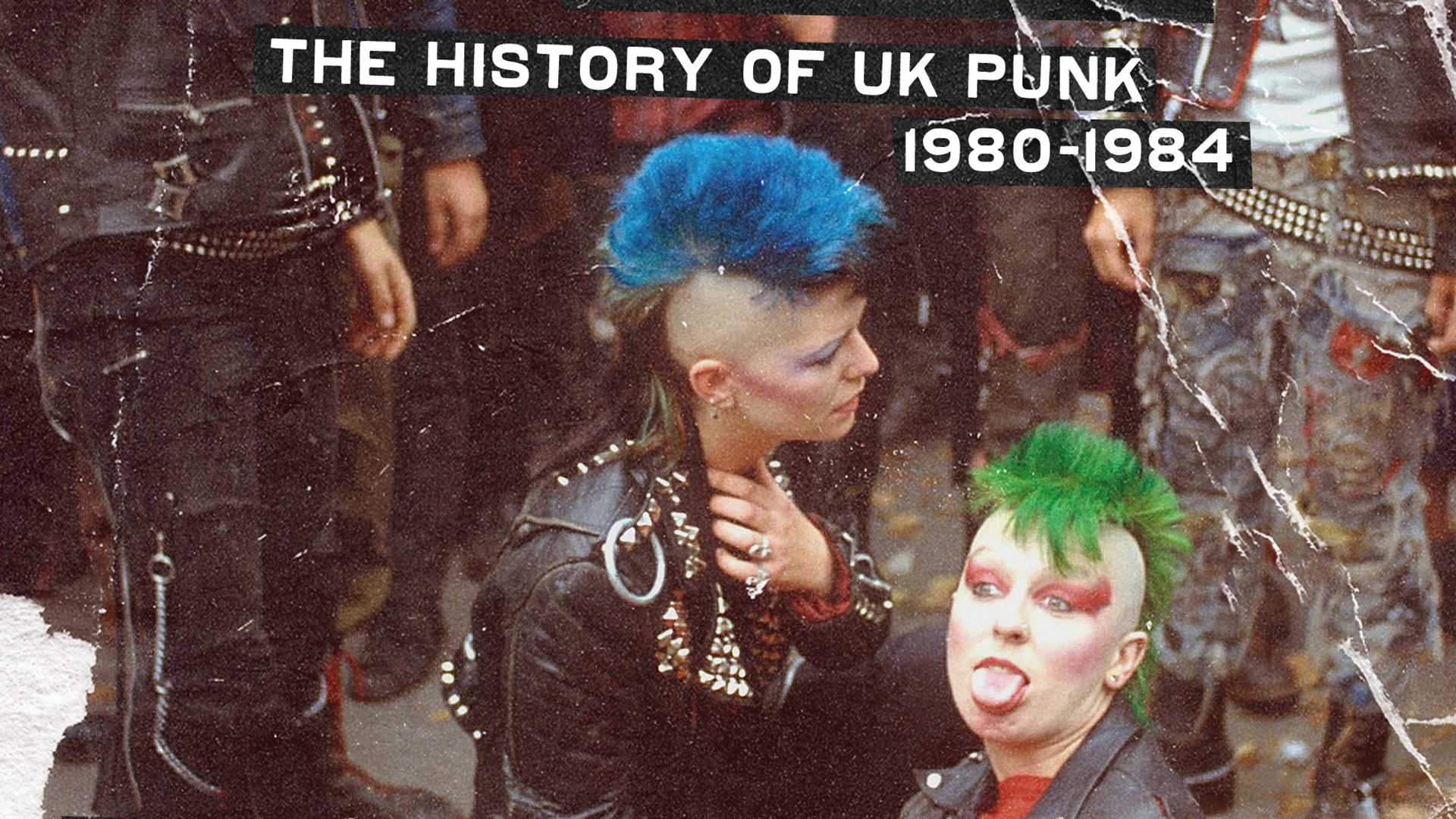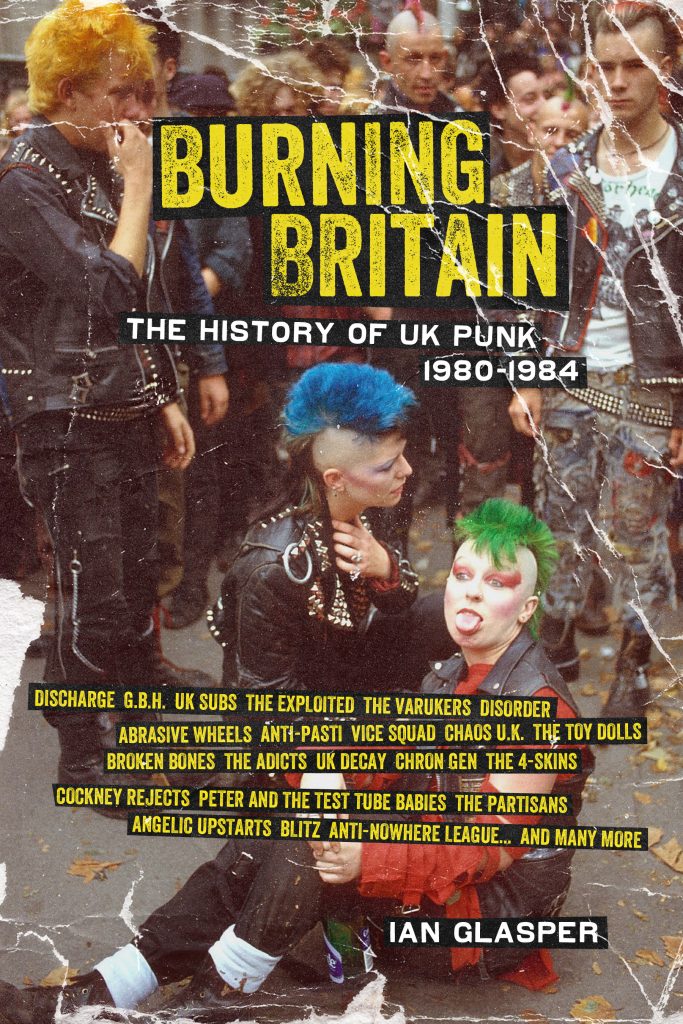The two most common questions I get asked in conjunction with my books are: why write them in the first place? And, what got you into punk rock? Or when/why/how did you get into punk rock? You know, the usual stuff. So, in an effort to avoid people asking me these questions ever again (not that I resent answering such questions, but, you know, life’s too short…), allow me to enlighten you. Not all at once, mind, otherwise this would be the longest, shortest-running blog ever, but I’ll talk about my entry into punk rock first, and then if you care to tune back in next month (if you suffer from insomnia, for example) I’ll talk you through how I got the books off the ground in the first place…
I’ve never blogged before, and I’m not big on self-obsessed retrospection, but I guess some perspective is needed whenever someone talks about their own particular entry into the world of punk rock. And of course, everyone’s own experience is the most precious to them; no one’s right and no one’s wrong. If you got into punk in ’77, you’ve probably carried a torch for the Stranglers your whole adult life, but if you were born four years later, you’re more likely to go all dewy-eyed over ‘Dead Cities’ or ‘More Than Fights’ than ‘Golden Brown’.
I was born in 1967, so I was just too young to give a shit about punk rock in 1976/77, but I did like music. My mum and dad listened to the Stones and the Beatles and Roxy Music, so there were some good records being played in the house. I had a very decent upbringing, my mum and dad looked after us, my younger brother and I got into all the stupid trouble that young boys tend to, but nothing too outrageous; we weren’t well off and we weren’t stony broke, so I wasn’t driven towards music as an escape from poverty or abuse or anything ‘romantic’ like that. The one thing that I think did push me towards music and fantasy though (I loved reading, and devoured horror and science fiction books and comics) was the mind-numbing tedium of the town where we lived. Also I was very slightly built and tended to get made fun of at school – not physically bullied, because I quickly became expert at disarming potentially painful confrontations with wit and guile (although I did get my arm broken when I was thrown down a bank on my first day at ‘big school’, but that’s another story) – so fantasy fiction, and film, was somewhere nice to immerse myself and dream of being infinitely more confident and capable of commanding social interaction.
Anyway, I started to watch Top Of The Pops, and started reading Smash Hits, then NME and Sounds, and started getting into energetic music like the Stray Cats and Blondie and Squeeze. I started buying 7” records for 45p from Woolworths, and from there it was a small step to having a slate at the local record store and early singles from Adam And The Ants and Killing Joke. This was about 1980.
My cousin Mobs was already getting into punk, and he was playing the Pistols and SLF whenever I was around there, and as much as I thrilled to the swearing on ‘Friggin’ In The Riggin’’ and loved the snotty abrasiveness of ‘Suspect Device’, it wasn’t until he played me ‘Decontrol’ by Discharge that I fell for punk rock hook, line and sinker. I’d never heard anything like it before. I wasn’t sure why I liked it, but something compelled me to listen to it over and over again, something stirred in me on a raw primal level I didn’t even know I was carrying around, and at exactly the right moment in my life when I needed something to believe in I HAD something to believe in.
My fate was sealed; it was pretty much a done deal before Cal had finished bellowing, ‘They fill you up with their fucking lies…’ I threw myself into it with gusto, consuming records as quickly as Crass and No Future (just a short 15-minute train journey away in nearby Malvern) and Clay and Riot City could release them, and then when I wasn’t getting my musical fix regularly enough from vinyl I started hunting down demos of new bands as well, and reading about those bands in fanzines made me realise that it wasn’t just about music and defiance, it was about unity and respect and making a difference through participation. It was about having an opinion and making it heard. It wasn’t about merely reading zines and listening to music, it was about writing zines and making music too. I heard the call and answered it as loud as my timid little voice would allow.
For someone who had learnt to watch what he said for fear of reprisal from his peers, being able to write lyrics and music and express yourself as vocally as you like was just about the most liberating thing in the whole world. Suddenly we had something really exciting to talk about as we prowled the drizzle-drenched streets, something positive to occupy our teenage minds instead of the petty vandalism we’d previously turned to for shits and giggles. We were hatching preposterous dreams of world domination; too young to yet be tarnished by cynicism and nihilism (we were learning to rebel without quite understanding what we were rebelling against), we were railing against the status quo – and quite possibly Status Quo themselves, come to think of it – in a riot of leather, studs and acne (we were still a year or two shy of bristles).
I’d always thought the local punks looked uber cool throwing each other about at the school disco to ‘Love Song’, and now I knew why – ridicule really was nothing to be scared of! It was a cathartic release, a venting of repressed anger and pent-up aggression. It was camaraderie dressed up as violence, a secret code that could only be deciphered by the chosen few. Much like the music, which I loved with a passion; the more tinny and dinny, the better… as long as it was intense, I could relate. And if the normal folk didn’t like it, they could take a long dive off a short stage! I’d found somewhere I could be myself.


